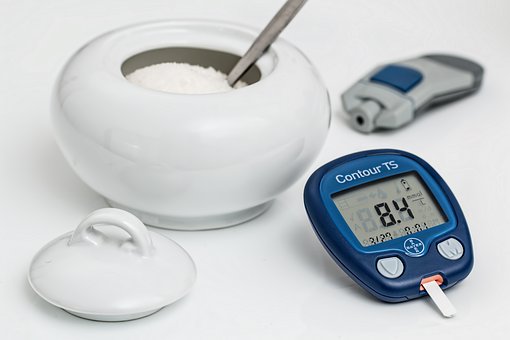What is intermittent fasting?
Intermittent fasting is a regimen that does not focus on what you eat, but rather on when you eat. Fasting for a number of hours during the day or eating only one meal a few days a week can have many health benefits.
The human body has evolved to be able to go without food for many hours, or even days. Intermittent fasting prevents complications from eating, accumulating calories, and being less active, including: obesity, type 2 diabetes, and heart disease.
The most popular intermittent fasting methods include: fasting for 24 hours, and fasting daily for 16 hours, twice a week.
Types of intermittent fasting
People have different preferences regarding the types of intermittent fasting:
1. 12-hour intermittent fasting
This method depends on abstaining from eating for 12 hours every day and sticking to it, which helps to lose weight by: The body converts fat stores into energy, which leads to the release of ketones into the bloodstream.
Fasting for 12 hours a day is a good option for beginners because the fasting period is relatively short, and most of its hours are during sleep, for example:
- Fasting between 7 pm and 7 am, i.e. eating dinner before 7 pm, and breakfast at 7 am.
2. Intermittent Fasting 16/8
The 16/8 intermittent fasting system is based on fasting for 16 hours a day, with the possibility of eating during the remaining 8 hours.
In this system, the evening meal is finished by 8 pm, and breakfast is not eaten the next day, as it is possible to eat again at noon.
This method can prevent: obesity, infections, and diabetes.
3. Fasting for 24 hours (eating – stopping – eating)
A complete fast for one or two days a week, or an Eat-Stop-Eat diet, is based on not eating for 24 hours at once: from breakfast to breakfast or from lunch to lunch.
In this type of intermittent fasting, people can drink: water, tea, and other calorie-free beverages.
Some people may find the 24-hour fast difficult, and it may cause them: fatigue, headaches, or irritability. However, these effects become less severe with time.
Before moving on to a full 24-hour fast, you can go through a 16-hour fast.
4. Intermittent Fasting 5:2
The 5:2 diet, also known as the fast diet, involves eating standard amounts of healthy food for 5 days and reducing calories for the other 2 days.
During the two fasting days, females consume 500 calories, while males consume 600 calories. Most people separate the fasting days during the week, for example:
- Fasting on Mondays and Thursdays, and eating on the rest of the days.
This type of fasting helps: reduce insulin levels, restrict calories twice a week, which leads to weight loss.
5. Missing meals during the day
Skipping meals during the day, or the Warrior Diet, is a diet that involves eating very little food, in the form of a few servings of raw fruit and vegetables, within 20 hours, then eating one big meal at night that includes vegetables, protein, healthy fats, and some carbohydrates. .
The benefits of intermittent fasting
Most of those who adopt the intermittent fasting style want to lose weight, reduce the rumen..but intermittent fasting has several other benefits, including:
1. The effect of intermittent fasting on cells and hormones
During fasting, your body adjusts the hormone to facilitate access to stored fat, and your cells begin repair processes and alter gene expression. Here are the changes that occur in your body at the level of cells and hormones during fasting:
-
human growth hormone (HGH)
Its levels are dramatically increased and increased by 5 times, which aids in fat loss and muscle gain.
Insulin levels decrease, and insulin sensitivity improves as well, which is useful for making stored body fat more accessible.
-
cellular repair
Cells initiate cellular repair processes during fasting, including autophagy, whereby they remove old and dysfunctional proteins that build up inside cells.
-
gene expression
Intermittent fasting causes changes in the function of genes related to: longevity, protection against disease.
2. Lose weight and improve body composition
Intermittent fasting leads to a decrease in calorie intake, a change in hormone levels, an increase in the secretion of the fat-burning hormone (noradrenaline) and thus weight loss, an increase in the metabolic rate by 3.6-14%, and a loss of harmful belly fat that accumulates around the organs and causes disease.
3. The benefits of intermittent fasting for cardiovascular health
Intermittent fasting helps lower blood pressure in the short term, especially the systolic blood pressure, which is the top number in a blood pressure reading and indicates the force of the heart against the artery walls each time it beats.
A healthy blood pressure is essential to avoiding diseases of the heart, brain, kidneys and eyes.
4. Lower cholesterol
according toreview Published in Annual Review of Nutrition 2021, intermittent fasting can help lower harmful LDL cholesterol, which increases the risk of heart disease or stroke.
According to the same source, intermittent fasting reduces the presence of triglycerides, which are found in the blood and which increase the risk of: stroke, heart attack, and heart disease.
5. Better outcomes for stroke survivors
Intermittent fasting provides a protective mechanism for the brain and also promotes stroke recovery due to its anti-inflammatory effect.
6. Potential benefits for cognitive function
Intermittent fasting improves mental acuity and concentration, helps enhance memory, and prevents neurological disorders.
7. Protection from cancer
Intermittent fasting reduces the risk of cancer by slowing the ability of cancer cells to spread and adapt, in addition to improving the effects of cancer treatment. However, this field still needs more research.
The dangers of intermittent fasting
The risks of intermittent fasting can include immediate unwanted side effects, such as hunger, insomnia, fatigue, decreased concentration, nausea, constipation and headaches. However, most of these side effects disappear within just one month.
- Risk of overeating and binge eating during non-fasting periods: The stress hormone, cortisol, increases, which leads to more food cravings.
- Dehydration. During periods of fasting, you may forget to drink. While it is essential that you stay hydrated throughout the day by drinking around three liters of water.
- Fatigue, because the body is working less energy than usual, in addition to enhancing stress levels, which leads to disruption of sleep patterns.
- anxiety and depression, that the same biochemistry responsible for regulating mood is also responsible for appetite.
When should you consult a doctor before following intermittent fasting?
Most people turn to intermittent fasting in order to manage weight or treat some chronic condition. But intermittent fasting is not for everyone.
So before you try to start intermittent fasting, be sure to consult your doctor. Here are the categories that should avoid intermittent fasting:
- children.
- Teenagers under the age of 18.
- pregnant women.
- Breastfeeding women.
- Type 1 diabetes patients.
- Those with a history of eating disorders.
Other categories outside of these groups are permitted for intermittent fasting. However, talking to a doctor is still the best way to be sure.
Frequently asked questions that may interest you
How do I start the intermittent fasting system?
Before starting an intermittent fasting regimen, it is important to set an end goal for the fast, determine the most appropriate fasting method for you, and the number of calories and nutrients your body will need.
When starting out, stick to one fasting method for at least a month to see if it works before trying a different method of fasting.
If you have any medical conditions, it is best to consult a professional before beginning any method of fasting.
What is the allowed food in intermittent fasting?
During intermittent fasting, you can drink water and calorie-drinking beverages such as coffee and tea during periods when eating is not allowed. As for during periods of eating, you can eat normally, but stay away from harmful, high-calorie foods, and fried foods.
The Mediterranean diet is the best way to eat during intermittent fasting. It is best to eat: complex, unrefined carbohydrates such as whole grains, leafy greens, healthy fats, and lean protein.







